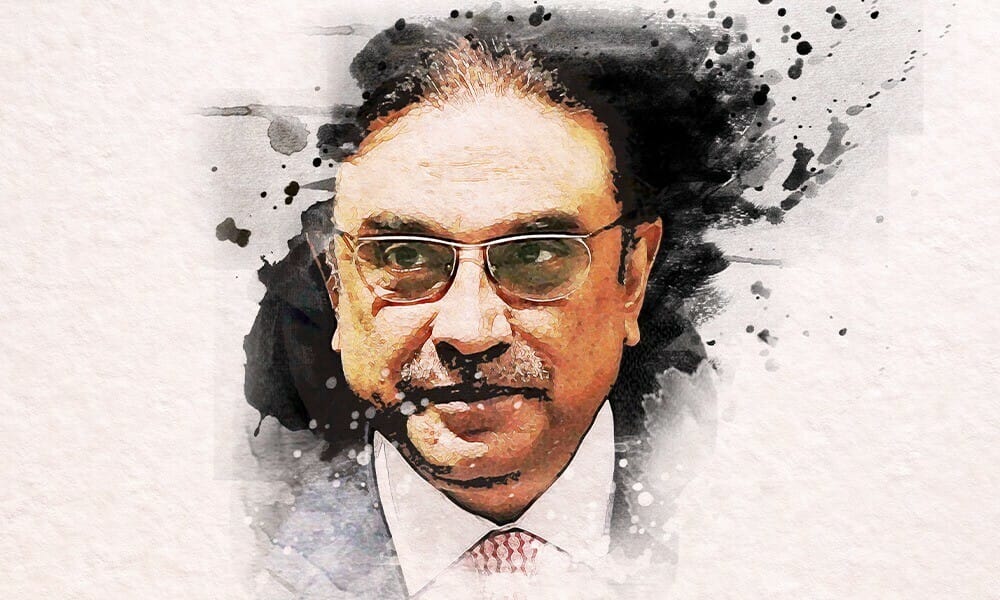Asif Ali Zardari is a notable name in Pakistani politics. He has played a crucial role in shaping the Pakistan People’s Party (PPP) and has served as the country’s 11th President. His journey through the political arena is filled with challenges, resilience, and strategic maneuvering.

Early Life
Born on July 26, 1955, in Karachi, Asif Ali Zardari grew up in a politically influential family. His father was a prominent landowner, giving Zardari insight into the complexities of business and politics. He studied in Pakistan and later in the United States, where he developed his interest in political affairs.
Marriage to Benazir Bhutto
Zardari’s political journey took a significant turn when he married Benazir Bhutto in 1987. Bhutto, the daughter of Zulfikar Ali Bhutto, was a pivotal figure in the PPP. This marriage positioned Zardari at the heart of Pakistani politics, where he became an essential ally to Bhutto during her campaigns.
Challenges and Imprisonment
After Benazir Bhutto’s government was dismissed in 1990, Zardari faced serious challenges. He was accused of corruption and faced imprisonment in 1996. This period was tough, but Zardari’s determination to support the PPP remained unwavering. After his release, he continued to work behind the scenes to help his wife regain power.
Rising to the Presidency
Following the tragic assassination of Benazir Bhutto in 2007, Zardari found himself in a challenging position. The nation was grieving, but he stepped up as a unifying leader for the PPP. In the 2008 elections, the PPP emerged victorious, and Zardari became the co-chairperson of the party.
In September 2008, he was elected as the President of Pakistan. During his presidency, he worked on stabilizing the economy and addressing terrorism. His leadership was crucial in navigating the turbulent waters of coalition politics.
Legacy and Controversies
Zardari’s presidency was not without its controversies. He faced criticism regarding corruption and governance issues. Despite this, he focused on continuing Benazir Bhutto’s legacy and aimed to uplift the marginalized through various social welfare programs.
His time in office also included efforts to tackle significant challenges like natural disasters and economic instability. While he received mixed reviews, Zardari remained a key figure in keeping the PPP relevant in Pakistan’s political landscape.
Return to Political Life
After his presidency, Zardari continued to play an active role in politics as co-chairperson of the PPP. He worked to connect with younger voters and emphasized the importance of unity and progress within the party.
Conclusion
Asif Ali Zardari’s journey through the political landscape of Pakistan is marked by resilience and determination. From navigating personal tragedies to addressing the complexities of governance, he has shown a commitment to the ideals of the Pakistan People’s Party. His legacy continues to influence the party and the country, highlighting the enduring spirit of political engagement.


